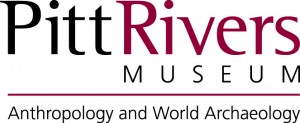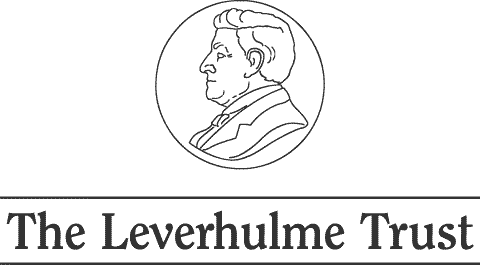To search the RPR site click here
S&SWM PR papers P136c
P136c
This is a printed set of papers headed 'Return to an Order of the Honourable The House of Commons dated 27 June 1881. No. 1 is the letter from Pitt-Rivers to Thompson, No 2 [the report] is given below and No. 3 is the letter from Sandford to Pitt-Rivers
No. 2.
Report of the Committee appointed by the Lords of the Committee of Council on Education on the offer made by General Pitt Rivers with regard to his Collection
1. At the first meeting of the Committee a letter addressed by General Pitt Rivers to Mr Thompson ... was considered ... and as it appeared that the intentions and wishes .... were not so fully expressed and defined ... as seemed desirable he was requested to furnish the Chairman with a complete written statement of his views.
2. The following letter ... was laid before the second meeting of the Committee:-
19 Penywern-road, South Kensington | 21 July 1880
Sir
Having been asked by the Committee ... to define the terms on which I make the offer of my Museum to the nation, I now do so premising that, as my object is to extend and develope [sic] the collection on a particular plan, it is necessary that I should make my gift subject to certain conditions.
I will present the collection to the nation as it now stands, by deed of gift, subject to the following conditions, viz:
1st. That as the objects in this collection hang together as a whole, they shall never be dispersed or sold.
The following to operate during my lifetime.
2nd That should there be specimens which I consider useless for the purposes of the collection, they shall be withdrawn previous to the signing of the deed of Gift
3rd That I should have the management of the collection during my life or as long as I please, in so far as regards the arrangement of the specimens in the cases, on the screens and in the rooms, the disposal of duplicates, and the ticketting and the cataloguing; and to have such facilities of access as may be necessary.
4th. That the Government shall provide, at once, additional space for the present collection and ultimately space for the additions that I may make to it, with cases for preserving and exhibiting the same, to the extent of the entire length of the gallery in part of which the present collection is contained, or the one above it; or provide an equal amount of accommodation for it elsewhere
5th. That the specimens which I shall add to the collection, after signing the deed of gift, shall become the property of the Government subject to the above & other conditions herein contained, six months after they have been entered in the stores lists, until which time they shall be considered on loan & space shall be provided for this with the means of exhibiting them temporarily.
6th. That room space and case accommodation shall be provided by the Government for the objects added to the collection after the signing of the deed of gift within a reasonable time, that is to say within 6 months after they have been entered in the stores lists providing the accommodation thus allotted to the whole collection shall not exceed the amount mentioned in clause 4.
7th. That if the government should fail to provide accommodation for the objects in the manner detailed in clause 4 & 6 the entire collection shall revert to me and I shall have the power of disposing of it as I may think fit
8th That after the space detailed in clause 4 has been filled up, I shall be permitted to add drawers and trays at my own expense for the purposes of containing further additions and perfecting the part of the collection which is exhibited in cases
9th That no object shall be lent temporarily from the collection without my consent.
10th The Government to provide lighting, attendance & police supervision
11th The Government to provide for the repair of objects that may be broken
12th I am willing to provide and pay a curator as long as I have the management of the collection, should the government approve. But should this not be approved, I should wish that an officer having an special knowledge of the subject should appointed, whose duties should be confined to the collection and who will act subject to the conditions contained in clause 3
I wish to add that I am very anxious that a decision on this subject should be arrived at as soon as possible as many private arrangements are dependent on it.
I have &c (signed) A. Pitt Rivers ....
[NB a draft of this is given as P134, transcribed here]
3. The Committee is unanimously of opinion that the collections offered to the Government ... is of great value and interest.
4. [explanation, using Pitt-Rivers 1877 catalogue as basis] of the aim of Pitt-Rivers collection]
5. That the collection therefore differs from ordinary ethnological collections in principle, and does not reduplicate or come into competition with them
6. The Committee recommends the acceptance of the collection by the Government, leaving General Pitt-Rivers full powers to add or substitute specimens, or dispose of duplicates, and arrange the whole according to his own views.
7. The Committee suggests, however, that the development of the collection shall be strictly limited to the efficient illustration of the principle upon which it has been formed; and they think that some reduction in the number of specimens already existing in the collection, may be effected without injury to its scientific completeness.
8. The Committee is of opinion that twice as much space as is at present occupied will be sufficient for the adequate illustration of General Pitt Rivers' idea. The collection and arrangement of the specimens will be a work of time.
9. The Committee considers that if General Pitt Rivers' collection be accepted by the Government, it should be with the reservation that if at any time the Government should cease ... to retain the collection as a whole, it should in the first instance be offered to other public bodies in England, and if not accepted under the conditions of this letter, should be offered to the representatives of General Pitt Rivers, and if not accepted by them, that the Government should be at liberty to dispose of it in any way it may think fit. ...
[There is a note at the end saying that Rolleston disagreed with the suggestion that the development should be limited in para 7]
Transcribed by AP for the Rethinking Pitt-Rivers project August 2011



